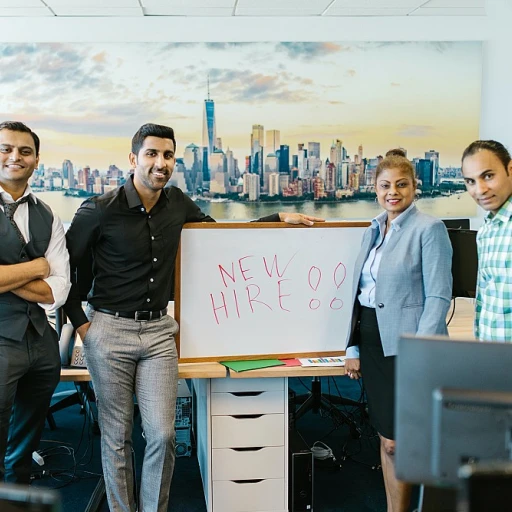
Understanding Cross-Generational Mentoring
The Dynamics of Bridging Generational Differences
In today’s diverse workplace, understanding cross-generational mentoring is pivotal for fostering an inclusive and dynamic environment. Mentoring across generations involves the exchange of knowledge, skills, and values between different age groups, ranging from baby boomers to millennials and beyond. This form of mentorship is a two-way street where both mentors and mentees from various generational backgrounds can gain valuable insights and perspectives.
The concept extends beyond traditional boundaries, incorporating social and family dynamics, educational attainments, and varied communication styles. Generational mentoring is not confined to the workplace; it permeates through social platforms, schools, and even within family units, bridging the gap between older generations and younger employees.
Each generation comes with its unique set of experiences and communication preferences. Baby boomers, for example, may lean towards direct, face-to-face communication, while younger employees, such as Generation Z, might prefer digital interactions. Understanding these differences is crucial in bridging generational gaps effectively.
Incorporating this practice into organizational culture not only enhances the work environment but also promotes understanding and collaboration among different groups. This cross-generational approach is vital in breaking down stereotypes and fostering an inclusive culture that values diverse perspectives.
Job roles can be enriched by embracing the expertise of seasoned employees while also valuing the fresh perspectives of the younger generation. The multi-generational workplace thrives on this blend of experience and innovation, shaping the future of organizational growth and development.
For more insights into generational influence and mentoring techniques, you can explore the diverse role of affiliate coaches in mentoring settings across the United States.
Benefits of Cross-Generational Mentoring
Unlocking Potential Through Generational Mentoring
Cross-generational mentoring offers a myriad of benefits that significantly enhance the workplace environment. Among the primary advantages is the facilitation of communication and understanding between different age groups. This dynamic interaction fosters a culture of generational diversity and inclusivity, diminishing the generation gap and enriching the workplace with varied perspectives.- Enhanced Knowledge Sharing: Older employees, such as baby boomers, bring a wealth of experience and deep expertise, while younger employees often introduce innovative ideas and technology-driven solutions. This exchange of knowledge between generation groups opens avenues for mutual education and personal growth, benefiting both mentors and mentees.
- Strengthened Communication Styles: Generational communication is key to building effective relationships. By working closely, employees across generations learn to appreciate and adapt to various communication styles, resulting in improved collaboration and understanding.
- Long-term Organizational Success: Generational mentoring ensures the continuous development of younger employees by equipping them with the necessary tools to succeed in their careers. On the other hand, older generations stay updated with current trends and practices, maintaining their relevance in the evolving workplace.
- Fostering Social Values and Unity: Beyond professional development, mentoring programs help instill core social values in employees, from the eldest to the most youthful. This shared educational attainment creates a cohesive familial environment, reminiscent of generational interactions within a family.
Challenges in Cross-Generational Mentoring
Overcoming the Generation Gap
Cross-generational mentoring can face significant challenges due to the diverse backgrounds and experiences that each generation brings to the workplace. The generation gap, often characterized by differences in communication styles and values, presents hurdles that can hinder the success of mentoring programs.
The Communication Conundrum
Communication styles are one of the key areas where generational differences surface. For instance, while older employees may prefer face-to-face meetings, younger employees might lean towards digital communication tools. This variation in communication preference can create misunderstandings and disconnects if not properly navigated.
Navigating Social and Cultural Norms
Each generation is shaped by the social norms and cultural contexts they grew up in. For instance, baby boomers might have different views on work-life balance compared to millennials or Gen Z employees. This can lead to conflicts in values and expectations within the workplace, complicating generational communication and mentorship efforts.
Age-Related Assumptions and Bias
Another challenge in cross-generational mentoring is the presence of generational bias. Older generations might assume younger employees lack commitment, while younger generations may view their older counterparts as resistant to change. These stereotypes can stifle open communication and learning opportunities among mentors and mentees.
Diverse Learning and Mentoring Needs
The mentoring needs of different age groups can vary greatly. While younger employees might seek guidance on career advancement, older employees might look for insights on adapting to new technologies. Addressing these varying needs requires a tailored approach to mentoring, ensuring both parties benefit equally from the relationship.
Despite these challenges, effective strategies can be developed to bridge the generation gap and foster a cohesive mentoring environment. By acknowledging and addressing these challenges, workplaces can create mentoring programs that thrive on generational diversity. For further insights on tackling these challenges and achieving long term success in mentoring programs, exploring the role of coaching can offer valuable perspectives.
Strategies for Effective Cross-Generational Mentoring
Nurturing Effective Communication Across Age Groups
Maintaining a constructive dialogue between different generations in the workplace can be a challenge, but it's essential for successful mentoring. Understanding the diverse communication styles employed by different age groups is key. Older generations may prefer face-to-face meetings, while younger employees often favor digital communication platforms. Bridging this generation gap requires a balanced approach.- Adaptation to Technology: Encourage mentors and mentees to embrace various communication tools, ensuring both parties feel comfortable. This promotes effective generational communication and understanding.
- Regular Feedback: Implementing a system of continuous feedback allows mentees and mentors to express concerns and refine their interactions, which is crucial for cultivating mutual respect and learning.
- Setting Common Goals: Define shared objectives that resonate with both parties. These goals should reflect both personal values and the larger organizational mission, enhancing the mentoring program’s benefits.
Tailoring Mentoring Approaches to Individual Needs
Given the diversity of generational experiences, it's critical to recognize and address the unique backgrounds and expectations of each age group. Whether a baby boomer or a millennial, every individual brings distinct perspectives and knowledge to the mentoring relationship.- Customizing Learning Methods: Acknowledge different educational attainment levels and tailor learning strategies accordingly. While some may appreciate traditional instructional methods, others might flourish with more social or interactive techniques.
- Promoting Inclusivity: Foster a culture that values input from all generations. This involves recognizing the contributions of younger employees while also valuing the wisdom older employees bring.
- Cross-sectional Interaction: Facilitate activities that encourage interaction among different age groups. This cross-pollination of ideas and experiences enriches the mentoring process, offering long-term benefits to individuals involved.
Building a Multigenerational Support System
Having a support system in place ensures the sustainability of cross-generational mentoring. This involves building an inclusive environment where every generation feels valued and supported to grow.- Creating Mentoring Networks: Develop formal networks within organizations, schools, or community groups that connect mentors and mentees across different generations.
- Frequent Workshops: Organize regular workshops focusing on enhancing generational mentoring skills, emphasizing the importance of understanding social dynamics within the workplace.
- Incorporating Family Dynamics: Recognize the role of family influences and values that might affect mentoring preferences and practices. Integrating family perspectives can build a more holistic support system.













